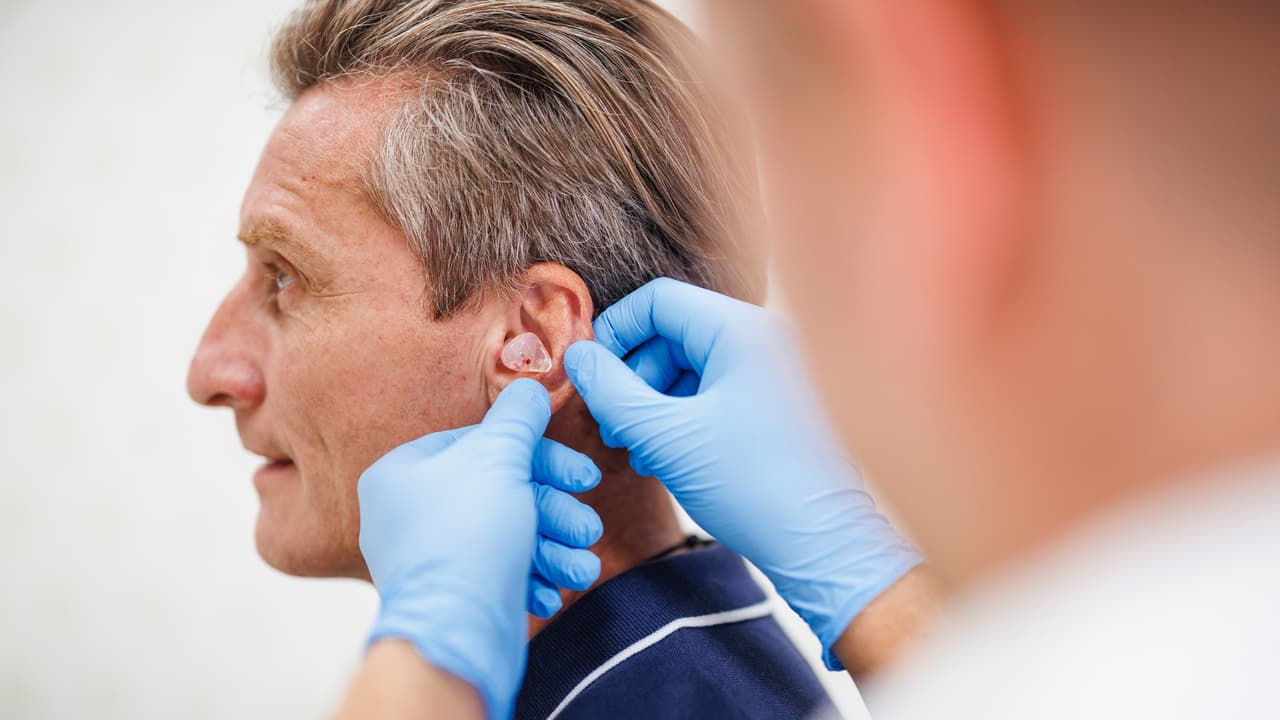Scientists have discovered a CPD gene mutation that causes congenital hearing loss. The study reveals how arginine and nitric oxide disruptions damage ear cells — and how arginine or Viagra could help restore hearing.
In a breakthrough that could change how we treat certain types of deafness, researchers at the University of Chicago have uncovered a hidden genetic cause of hearing loss — and even found potential ways to reverse it.
The study, published in the Journal of Clinical Investigation, reveals that mutations in a gene known as CPD can lead to congenital hearing loss by disrupting how the ear’s sensory cells process a vital molecule called arginine. Even more remarkable, the team found that treatments involving arginine supplements or sildenafil (commonly known as Viagra) may restore hearing function in experimental models.
A Clue Hidden in the Genes
The research began when scientists identified unusual mutations in the CPD gene among several Turkish families with hereditary sensorineural hearing loss — a condition that damages the inner ear and typically causes lifelong deafness.
“Finding a new gene responsible for deafness is exciting on its own,” said lead researcher Dr. Rong Grace Zhai, a neurologist at the University of Chicago. “But what makes this discovery special is that we also uncovered a pathway that might actually be treatable.”
When the researchers searched broader genetic databases, they found that other individuals with CPD mutations also showed early-onset hearing loss, confirming that the gene plays a vital role in maintaining healthy hearing.
How a Single Gene Protects the Inner Ear
The CPD gene normally helps produce arginine, an amino acid that fuels the production of nitric oxide, a signaling molecule crucial for nerve communication. In the inner ear, this process helps keep the delicate hair cells — the sensory structures that detect sound vibrations — healthy and functional.
But when CPD is mutated, arginine levels drop and nitric oxide signaling falters. The result: oxidative stress that kills off hair cells, leading to irreversible hearing damage.
“These hair cells are incredibly sensitive,” explained Dr. Zhai. “They rely on CPD to maintain balance in their signaling system. Without it, they’re left unprotected and begin to deteriorate.”
From Flies to Potential Human Treatments
To explore possible solutions, the team turned to fruit flies, a classic model for studying human genetic diseases. Flies engineered with the faulty CPD gene showed hearing and balance problems similar to those seen in humans.
The scientists then tested two potential fixes:
- Arginine supplementation to restore the missing amino acid, and
- Sildenafil (Viagra) to reactivate the disrupted nitric oxide pathway.
Both approaches improved the survival of sensory cells and even reduced hearing-loss symptoms in the flies. Laboratory tests using patient-derived cells showed similar benefits.
“This is a perfect example of how existing, FDA-approved drugs can be repurposed to treat rare diseases,” Dr. Zhai said. “It opens the door to fast-tracking therapies for patients who currently have no options.”
What Comes Next
The research team now plans to study how widespread CPD mutations are and whether they might also play a role in age-related hearing loss, which affects millions worldwide.
“How many people carry variants in this gene, and could it make them more vulnerable to hearing decline later in life?” Zhai asked. “That’s what we want to find out next.”
The study brought together scientists from the University of Miami, Ege University, Ankara University, Yüzüncü Yıl University, Memorial Şişli Hospital, the University of Iowa, and the University of Northampton (UK) — highlighting the global effort to understand and ultimately reverse hearing loss.
A New Hope for Restoring Hearing
While the findings are still in the early stages, they mark a major step toward developing targeted therapies for genetic forms of deafness. If further research confirms the benefits of arginine or sildenafil, people born with certain types of hearing loss could one day regain what was once thought permanently lost.
“Understanding the biology of hearing at this level gives us a real chance to make a difference,” Zhai said. “It’s not just about treating symptoms — it’s about fixing the root cause.”
